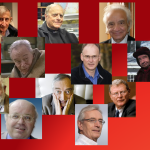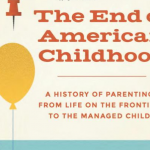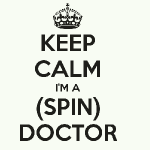Social Sciences
[Obvious warning is obvious: potential spoilers for A Song of Ice and Fire novels/Game of Thrones TV series below].
While no one will claim that George R.R. Martin's epic series, "A Song of Ice and Fire," is historically accurate, there are a number of historical parallels that can be drawn from the characters and plotline--particularly from medieval Europe. While most of those relate to epic battles or former monarchs or other royalty, another of Martin's characters, so to speak, is the disease greyscale (1).
Greyscale is a contagious disease that seems to come in at least two distinct…
Living and practicing surgery in Michigan, it’s not surprising that I am very concerned about a bill being considered in the Michigan House of Representatives. The bill, HB 4531, would license naturopaths as health care providers. In fact, it would give them a very broad scope of practice, defined by a newly created board of naturopathic medicine. Basically, HB 4531 would give naturopaths a scope of practice almost as broad as that of primary care providers, like internists, family practitioners, and pediatricians. The only difference, if HB 4531 passes, would be that naturopaths would not be…
Edward Feser thinks we atheists have overlooked a few things:
The mentality is summed up perfectly in the notorious “Atheist Bus Campaign” of 2009 and its preposterous slogan: “There's probably no god. Now stop worrying and enjoy your life.” As if atheism promised only sweetness and light. As if the vast majority of human beings would not find the implications of atheism -- that human existence has no purpose, that there is no postmortem reward to counterbalance the sufferings of this life, nor any hope for seeing dead loved ones again, etc. -- far more depressing than any purported…
The academic, economic and societal impacts of Open Access: an evidence-based review
Scholarly Communications: Less of a market, more like general taxation?
“We don’t need OA in our field, everything is on arXiv”. Nope.
>When is the Library Open? and the PS
Scholarly Communication and the Dilemma of Collective Action: Why Academic Journals Cost Too Much
Open Access: the beast that no-one could – or should – control?
Open access: All human knowledge is there—so why can’t everybody access it?
Why embargo periods are bad for academic publishers
Infrastructure is Invisible / Infrastructure is…
UPSATE. The motion has been denied. Rather hilariously, bt the way.
Professor Michael Mann vs. Shock Jock Mark Steyn
You all know about the libel suit filed by Professor Michael Mann against Canadian right wing radio shock jock Mark Steyn. Steyn made apparently libelous comments linking Mann, who is widely regarded as the worlds top non-retired climate scientist, to the Jerry Sandusky scandal. (I don’t know what Steyn was implying but the only link is that both work(ed) at Penn State University!) There are other aspects of the libel suit as well, beyond the scope of this post.
The suit was…
After yesterday’s epic mid-week rant about a man who thinks he knows what skepticism is but clearly doesn’t, it’s time to get back to business. The best way to do that is to go back to an article that came out the other day and that I had meant to blog about but temporarily shelved in favor of yesterday’s rant. It’s a topic that’s very relevant to me right now given that the Michigan legislature is considering a bill (House Bill 4531) that would give naturopaths a broad scope of practice almost the equal of that of primary care physicians, the only difference being that naturopaths wouldn’t…
So-called “alternative” medicine is made up of a hodge-podge of health care practices and treatments based on beliefs that are unscientific, pre-scientific, and pseudoscientific. These modalities include practices as diverse as homeopathy, traditional Chinese medicine, reflexology, reiki and other forms of “energy medicine” based on vitalism, chiropractic, and naturopathy, and that’s a short list of the quackery that falls under the rubric of the term “alternative medicine.” Unfortunately, this unscientific, pre-scientific, and pseudoscientific hodge-podge of treatments rooted in nonsense are…
Sunday Chess Problem is taking this week off. We do have a topic for conversation, however.
Richard Weikart is an historian at California State University, Stanislaus. He has made something of a cottage industry of blaming Darwin and evolution for the ills of the world, most famously in his book From Darwin to Hitler. His argument, apparently, is that poor Adolf Hitler was trying to understand the cause of Germany's decline, then he read Darwin and realized it was the Jews. The book was, understandably, savaged by more serious historians.
If Weikart's intent was simply to elucidate the…
Subtitle: Politicians School Scientists In How To Do It
Alternative Title: Where were Bernie and Hillary????
You need to know right away that the Lede to this story is buried way the hell down the page.
That’s OK, though, because others are covering this, and the point of my missive is to put the current situation into a somewhat larger context. Ultimately, the point I want to make is this: Even when a problem is mired in deeply entrenched corporate interests, small groups of tenacious heroes can make the world measurably better, and there is such a thing happening right now in the…
The town of Fort McMurray, Alberta and it's surrounding region are experiencing a horrific wildfire. Tens of thousands of people have been forced to evacuate.
The absolute most important thing in the short and medium term is to take care of the people of Fort McMurray. Yes, Fort McMurray is the hub of tar sands development in Canada. Yes, the tar sands and other fossil fuel development projects contribute to climate change. Yes, the tar sands in particular have been identified as a carbon source that needs to be left in the ground. But those aren't short and medium term considerations. Those…
Childhood is the most important human adaptation. If you don't believe me, read this highly convincing essay.
But childhood is also one of the most diverse aspects of our shared human culture. You know the aphorisms that incorporate the phrase "Kids these days..." You also know that most of the time the utterance is foundationless, just a grumpy complaint by someone who doesn't like the noise or disruption or some other annoyance that kids these days are so good at. But we also know that things really were different when we were kids, and that childhood varies wildly across the globe,…
Happy archaeo-dad pastime: Jrette helped me enter the humongous tables of stats on rock art from Mats Malmer's 1981 book into a computer spreadsheet, and we checked his sums, finding them all to be correct.
Funny how common it is even for educated people to believe that the Vikings would send their dead out to sea in a (sometimes burning) boat. Have they never considered what would happen two hours later when the boat landed on the other side of the fjord?
I'm measuring stuff on my computer screen with a ruler to get the relative scales right on two shots of an ard tip.
Trying to convince…
There is little that is cooler than robots on mars doing science. Human space agencies have been sending probes to the surface of various planets (and the Moon) for years now, with the full range of failure and success. But the last decade or so has seen space robots such as Mars Curiosity Rover sciencing the shit, as they say, out of the planet Mars.
Emily Lakdawala, of the Planetary Society, is a planetary geologist and science communicator who knows a lot about driving rovers. It turns out that this is all very complicated, and when science gets big, expensive, high stakes, and…
Mike Haubrich and I just taped an interview with space-robot expert and planetary geologist Emily Lakdawalla. Emily writes a blog at the Planetary Society, where she goes in depth on stuff that is happening in space, focusing on human-controlled robots on Mars, but covering a lot of other stuff too. The interview will be on Ikonokast in a day or two.
And we've arranged to interview Ethan Siegal of Starts with a Bang blog on Scienceblogs, and author of Beyond the Galaxy: How Humanity Looked Beyond Our Milky Way and Discovered the Entire Universe, in which I hope to ask him about this crazy…
Celebrities who support pseudoscience and quackery are worse than regular, run-of-the-mill believers because they have a much larger soapbox than any of us do. I have a pretty healthy blog traffic for a medical blog, but even I don’t reach more than maybe 10,000 people a day. Even at my not-so-super-secret other blog, we only reach four or five times that in a day on average. Compared to the millions that someone like, for example, Oprah Winfrey used to reach on a daily basis or that someone like Dr. Mehmet Oz reaches on a daily basis today, the reach of the entire science blogosphere is…
Over the last two decades, quackery has been slowly but steadily infiltrating conventional scientific medicine. It began in earnest back in the 1990s, but the groundwork had been laid for at least a couple of decades before, going back to when traditional Chinese medicine made its first foray into the “West.” Unfortunately, over the last couple of decades, the pace of infiltration as accelerated, with the foundation of an NIH center dedicated to studying and promoting quackery and the increasing number of departments and institutes of quackademic medicine. Basically, quackery became…
It's no secret that I'm a fan of John Ioannidis. (If you don't believe me, just type Ioannidis' name into the blog search box and see how many posts you find.) Over the last couple of decades, Ioannidis has arguably done more to reveal the shortcomings of the medical research enterprise that undergirds our treatments, revealing the weaknesses in the evidence base and how easily clinical trials can mislead, than any other researcher. Indeed, after reading what is Ioannidis' most famous article, "Why Most Published Research Findings Are False", back in 2005, I was hooked. I even used it for our…
As readers of this column may already know, earlier this week the Pacific Institute and I announced an important and exciting change: on July 1st after 28 years as co-founder and President of the Institute, I will be moving to a new position as President Emeritus and Chief Scientist. A wide search for a new president has been launched.
I’m neither resigning nor retiring. In my new role, I will continue to do research and writing on global climate, water, and sustainability issues, and I will continue to speak out on science and policy issues in public forums, with the press, and on…
Imagine all the poor transhumanists who were born in the 19th century. They would have been fantasizing about all the rapid transformations in their society, and blithely extrapolating forward. Why, in a few years, we'll all have steam boilers surgically implanted in our bellies, and our diet will include a daily lump of coal! Canals will be dug everywhere, and you'll be able to commute to work in your very own personal battleship! There will be ubiquitous telegraphy, and we'll have tin hats that you can plug into cords hanging from the ceiling in your local coffeeshop, and get Morse code…
Last month, Michael Balter published a story in Science about sexual misconduct in anthropology (I also mentioned it). A research assistant reported that Brian Richmond had assaulted her at a conference.
In late September 2014, less than 2 months after Richmond had begun at AMNH, he and the research assistant attended a meeting of the European Society for the study of Human Evolution (ESHE) in Florence. The research assistant says that on the last night of the meeting, she, Richmond, and several young European researchers were out on the town, visiting bars and drinking red wine and shots of…











